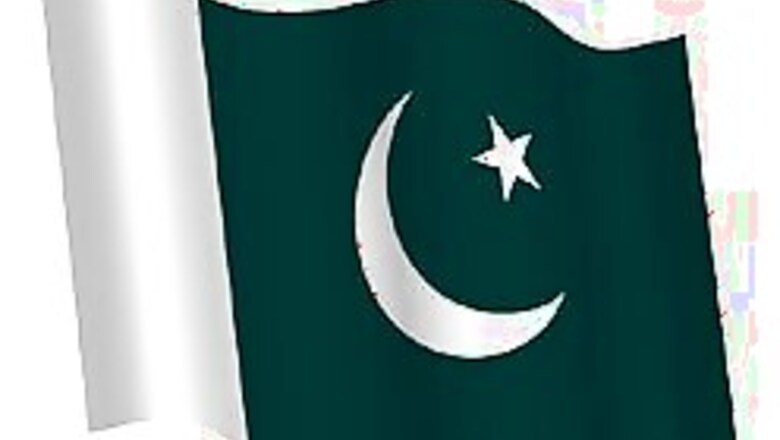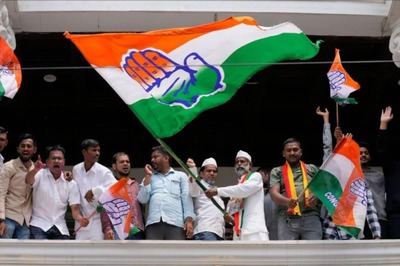
views
Peshawar: Pakistani voters are expected to succeed where President Pervez Musharraf has failed, pushing back the Islamist tide and throwing out of power political clerics governing Pakistan's violent northwest.
"God forbid, I will never vote for mullahs," said Saif-ur-Rehman, a bearded stall owner in Qissa Khawani, a famous bazaar in Peshawar, before rushing for prayers at a mosque in the provincial capital of North West Frontier Province (NWFP).
Parliamentary and provincial assembly polls set for February 18 will take place against the backcloth of a Taliban and al Qaeda campaign to destabilise President Pervez Musharraf.
For all the revulsion over almost-weekly suicide attacks, conservative religious folk of the area have more immediate concerns, like lack of jobs, rising food prices, power outages and gas shortages that left them without heat over the winter.
The mullahs who have held power in NWFP as well as politicians aligned with the unpopular Musharraf have become discredited.
"What have they done for us poor people?" asked Rehman, who sells a traditional black eyeliner used by men and women in the ethnic Pashtun lands of the northwest. "They have done nothing. Look at this broken road," he scoffed, pointing to a pothole.
Qari Gul Naseeb, NWFP president of the six-party Muttahida Majlis-e-Amal (MMA), says his Islamist alliance will do better than ever because it is the least corrupt. That claim doesn't jive with what many people think.
One political cleric has a reputation for making money through smuggling diesel, others for creaming off contributions meant for jihadi causes they endorse. Yet, Pakistani voters have shown high tolerance for corruption in the past, so long as elected leaders delivered, which is what people say the Islamists have failed to do.
"I voted for them last time because everybody was voting for them, but they have done nothing," said Abdul Latif, a young bearded, bespectacled man selling warm clothes at another stall.
The Islamist parties won 17 percent of seats in the National Assembly at that last election in 2002, having never notched up double figures before. They also won power in NWFP and shared power in Baluchistan, the poorest of Pakistan's four provinces.
What happens in NWFP and Baluchistan won't be crucial when it comes to deciding who forms the government in Islamabad as they only account for 49 of the 342 seats in the National Assembly.
PAGE_BREAK
But these provinces border Afghanistan and represent the frontline of the war on terrorism. The government will have an easier time fighting militancy without the Islamists in power locally.
RETURN OF MAINSTREAM PARTIES:-
The coming polls are expected to see a comeback by moderate parties that were marginalised by Musharraf after he took power as an Army general following a coup in 1999. But a low turnout is expected. Officials say the security situation is 'normal' in only six of NWFP's 24 districts.
Former interior minister Aftab Ahmed Khan Sherpao, an ally of Musharraf and regarded as a moderate force, can hardly go out to campaign having survived two suicide attacks last year.
On Saturday, a suicide attack in the northwestern town of Charsadda killed at least 16 people at a rally for the Awami National Party (ANP), an ethnic Pashtun party distrusted by a military establishment which favours centralised government.
Analysts say the Pakistan People's Party of assassinated opposition leader Benazir Bhutto, and ANP could end up forming a coalition government in NWFP. "We get the biggest applause in public meetings when we attack the MMA and General Musharraf," Afrasiab Khattak, the provincial president of ANP said.
Critics say the 2002 vote was massively rigged, but the Islamists also benefited from a wave of anti-US sentiment across the region following the 2001 invasion of Afghanistan.
This time the MMA is split, as its two major components disagree over participating in polls called after Musharraf secured his own re-election during emergency rule last November.
"The MMA will suffer because of lack of unity and credibility. But people will vote for anti-Musharraf parties to protest over issues like imposition of emergency and price hikes," said Rahimullah Yusufzai, a newspaper editor in Peshawar.
















Comments
0 comment